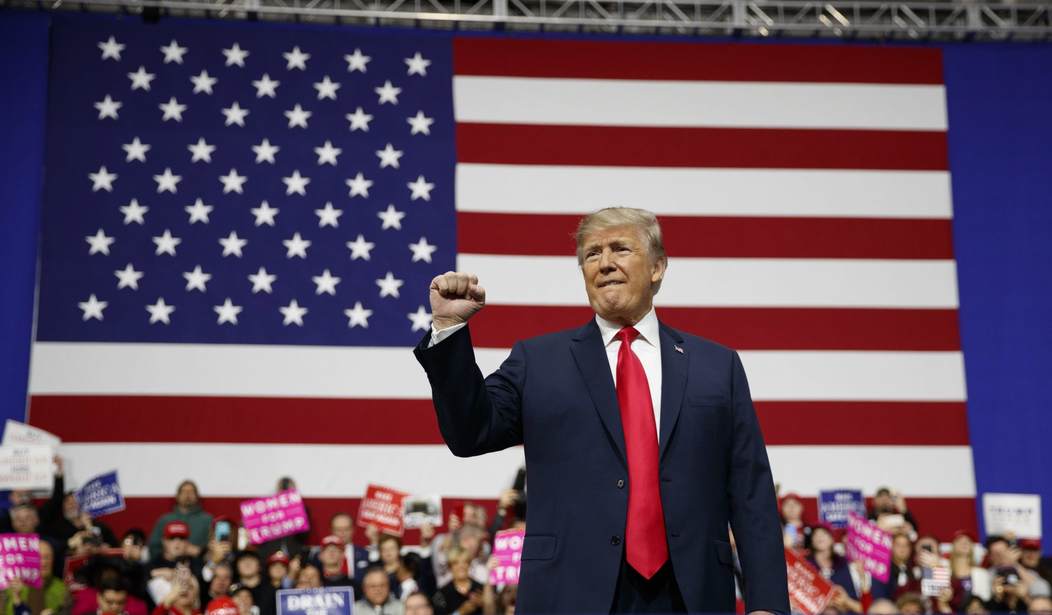Note: While President Donald Trump called off the June 12 Singapore summit with Kim Jong-Un, his diplomatic success in bringing Kim to the table was still remarkable, and North Korea did appear to destroy a nuclear site at Punggye-ri on Thursday.
On Thursday, journalists observed as North Korea apparently destroyed a great deal of its Punggye-ri nuclear test site. While North Korean leader Kim Jong-Un has threatened to pull out of the summit with President Donald Trump just weeks away, Trump has achieved more than most thought possible. On Tuesday night, U.S. Ambassador to the United Nations Nikki Haley explained how it happened.
Haley told a crowd at the University of Houston that she used “the unpredictability of President Trump” to help convince the Chinese to back tougher sanctions on North Korea.
“I would say, ‘We have to cut off the (North Korean) laborers’, you know? ‘We have to do this,'” Haley explained, the New York Post reported. “And they’d say, ‘Oh, no, no, we can’t do that.’ And I would say, ‘OK, but I can’t promise you that President Trump won’t use the military. I can’t promise that there won’t be a more forceful action, so why can’t we do this and see if we can start to cut the revenue in North Korea?'”
Haley’s strategy echoed the Nixon-era “madman theory.” Then-Secretary of State Henry Kissinger came up with the strategy in the 1970s in order to negotiate with Soviets during the Cold War and to keep enemies in the dark.
The UN ambassador explained she wanted to use the strategy to “leverage the situation” in Korea and get China on board before trying the strategy out on Russia and other nations involved in the sanctions.
“We knew that they were worried about a destabilized North Korea,” Haley added. “We knew about the pressures they felt like that would put on China. We knew about the idea that they didn’t want war in the region, and so a lot of the sanctions that we did — even though we squeeze China and we knew they hurt — the truth is, I would always use the unpredictability of President Trump to help me get the sanctions through.”
“It was through [this strategy] that we did the three sanctions, and by the time I got China to agree to pass those sanctions and I’d get the other countries to agree, then I just told Russia, ‘This is getting ready to happen.’ And we just kind of pushed them out of the way,” the ambassador said.
These comments sparked a round of applause, despite the fact that the crowd had been hostile to Haley at the opening of her speech. Students had organized a protest against the ambassador’s support for Israel’s response to Hamas riots around the time of the U.S. Embassy’s opening in Jerusalem.
As the ambassador took the stage, students broke out with chants. “Nikki Haley, you can’t hide. You signed off on genocide!” the protesters shouted. “Haley, Haley, you will see. Palestine will be free!”
Haley handled the confrontation with grace, declaring, “Here at home our political opponents are not our enemies and they’re not evil. There’s a big difference, and if we can’t keep that difference straight, we’re going to have a hard time conveying a message of hope to the world.”
Various commentators argued that Trump’s unpredictability could prove an asset in foreign relations. I listed this as one of the most compelling reasons to vote for Trump in 2016. “His public statements seem utterly unhinged one moment and rather reasonable the next,” I wrote. This unpredictability “is arguably a tremendous asset when it comes to foreign policy” because “it would keep America’s enemies guessing.”
Haley found a way to leverage this unpredictability for the good of America and the peace of the world. Both she and the president deserve tremendous credit in this arena.
About a dozen journalists witnessed the destruction of the Punggye-ri nuclear site on Thursday, CNN reported. North Korea appeared to destroy at least three nuclear tunnels, observation buildings, a metal foundry, and living quarters. A CNN crew witnessed the destructions, as did British broadcaster and Sky News Asia correspondent Tom Cheshire.
Even if Kim withdraws from the upcoming summit with Trump, the U.S. president has still achieved something that was largely incomprehensible last year.
Relations with North Korea have undergone a total reversal in the last few months. Even toward the beginning of this year, Democrats, liberal media outlets, and even a few Republicans insisted that Trump’s bold rhetoric against North Korea would spark World War III.
Instead, peace talks between North and South Korea started in January of this year, and South Korean President Moon Jae-in credited the U.S. president with having “made a huge contribution to make inter-Korean talks happen.” Last month, Jae-in and Kim Jong-Un signed a declaration committing the two Koreas to denuclearization and peace talks to bring a formal end to the Korean War, 65 years after the hostilities ended with an armistice.
Last month, a crowd in Michigan broke out in chants of “Nobel! Nobel! Nobel!” at the mention of North Korea. Sen. Lindsey Graham (R-S.C.) and House Minority Leader Nancy Pelosi (D-Calif.) have suggested that if North Korea denuclearizes under Kim Jong-Un, the president should receive the Nobel Prize.
A large majority of Americans support the upcoming summit. If it comes to pass, they can thank Nikki Haley and Donald Trump’s unpredictable persona.









Join the conversation as a VIP Member